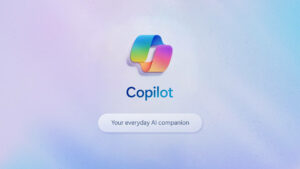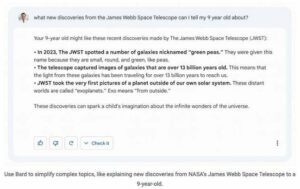
Llama 2, Meta's latest collection of large language models, can now be downloaded for free and commercial use is supported.
The Facebook parent released Llama 2 on Tuesday: this is a set of pretrained and fine-tuned text-based AI models in three different sizes, containing seven billion, 13 billion, and 70 billion parameters.
Unlike its previous LLaMA model, Meta is not limiting access to the neural networks to research purposes. Instead, anyone can request to download the newer Llama 2 tech, and developers can use it to build commercial products or services, as well as fun projects. We note that the previous LLaMA model leaked anyway shortly after release.
Meta has also partnered up with Microsoft and Amazon to make the model available on the IT giants' Azure and AWS cloud platforms, respectively. Microsoft is otherwise known for championing OpenAI's models.
"Open source drives innovation because it enables many more developers to build with new technology," Meta's CEO Mark Zuckerberg said in a statement. "It also improves safety and security because when software is open, more people can scrutinize it to identify and fix potential issues. I believe it would unlock more progress if the ecosystem were more open, which is why we're open sourcing Llama 2."
It's interesting that some people say, directly or otherwise, that Llama 2 is open source. Purists in the FOSS world may disagree.
Notably, there are some caveats to how the models can be used. On top of the usual disclaimers about not using the software for illegal activities or to deceive or mislead people, developers cannot take its outputs to improve other types of large language models.
Companies that are looking to use Llama 2 for applications that support more than 700 million monthly active users must request a special license to use Meta's technology. The full terms are set out in the Llama 2 Community License Agreement (text), which we failed to find on the Open Source Initiative's list of open source licenses.
"Our model and weights are licensed for both researchers and commercial entities, upholding the principles of openness," Meta's engineers explained in the Llama 2 README. "Our mission is to empower individuals, and industry through this opportunity, while fostering an environment of discovery and ethical AI advancements."
Researchers at Meta said Llama 2 is based on the same architecture as its previous version, but has been trained on 40 percent more tokens, which are chunks of text scraped from all kinds of sources, and can process more text in its input prompt. Its Llama-2 Chat model has been fine-tuned with reinforcement learning with human feedback techniques to make it generate more helpful and safer responses, we're told.
They warned that Llama 2 models aren't perfect, however, and can generate "harmful, offensive, or biased content." Still, they believe that releasing it for free means more developers can work on solving problems and allows more businesses to experiment with AI. Meta benefits if its software is more widely adopted, and it can steer companies away from its rivals like OpenAI or Google.
Speaking of AI models...
Microsoft on Tuesday announced it will charge M365 E3, E5, Business Standard, and Business Premium customers $30 per user per month for its OpenAI-powered Copilot suite of features. That's the GPT-4-grade technology that users can type natural language queries into – such as, summarize this Word document for a PowerPoint deck and email it to my boss – and the software will attempt to fulfill it.
The exact availability of this Copilot-for-suits will be announced by Redmond soon enough we're told. Selected business customers have been able to play with it so far. How much it'll cost normal individual users, and when they can broadly get hold of it, wasn't announced.
Microsoft also said it was making Bing Chat Enterprise available now in preview for no extra cost; that's essentially the Bing chatbot interface that netizens have access to for business customers, with a promise that it will safeguard corporations' data.
Bing Chat Enterprise "will be available as a standalone offering for $5 per user, per month" some time in the future, the Windows giant's execs added.
Chipmaker Qualcomm, for example, announced it was going to make "Llama 2-based AI implementations" available for its chips for smartphones and PCs starting from 2024.
"While many companies have opted to build AI behind closed doors, we are releasing Llama 2 openly to encourage responsible AI innovation. Based on our experience, an open approach draws upon the collective wisdom, diversity, and ingenuity of the AI-practitioner community to realize the benefits of this technology. Collaboration will make these models better and safer," Meta's scientists said in a research paper.
"Lastly, openly releasing these models consolidates costs and eliminates barriers to entry, allowing small businesses to leverage innovations in [large language models] to explore and build text-generation use cases. Ultimately, we believe this will create a more level playing field for organizations of all sizes across the globe to benefit from the economic growth promised by the advancement of AI." ®
- SEO Powered Content & PR Distribution. Get Amplified Today.
- PlatoData.Network Vertical Generative Ai. Empower Yourself. Access Here.
- PlatoAiStream. Web3 Intelligence. Knowledge Amplified. Access Here.
- PlatoESG. Automotive / EVs, Carbon, CleanTech, Energy, Environment, Solar, Waste Management. Access Here.
- BlockOffsets. Modernizing Environmental Offset Ownership. Access Here.
- Source: https://go.theregister.com/feed/www.theregister.com/2023/07/19/meta_llama_2/
- :has
- :is
- :not
- $UP
- 13
- 2024
- 40
- 70
- a
- Able
- About
- access
- across
- active
- activities
- added
- adopted
- advancement
- advancements
- After
- Agreement
- AI
- All
- Allowing
- allows
- also
- Amazon
- an
- and
- announced
- anyone
- applications
- approach
- architecture
- ARE
- AS
- At
- availability
- available
- away
- barriers
- based
- BE
- because
- been
- behind
- believe
- benefit
- benefits
- Better
- biased
- Billion
- Bing
- BOSS
- both
- broadly
- build
- business
- businesses
- but
- by
- CAN
- cannot
- cases
- ceo
- championing
- charge
- chatbot
- Chips
- closed
- Cloud
- CO
- collaboration
- collection
- Collective
- commercial
- community
- Companies
- Consolidates
- content
- Corporations
- Cost
- Costs
- create
- Customers
- data
- developers
- different
- directly
- discovery
- Diversity
- document
- doors
- draws
- drives
- e3
- Economic
- Economic growth
- ecosystem
- eliminates
- empower
- enables
- encourage
- Engineers
- enough
- Enterprise
- entities
- entry
- Environment
- essentially
- Ether (ETH)
- ethical
- example
- Execs
- experience
- experiment
- explained
- explore
- extra
- Failed
- far
- FB
- Features
- feedback
- field
- Find
- Fix
- For
- fostering
- Free
- from
- Fulfill
- full
- fun
- future
- generate
- get
- giant
- giants
- globe
- going
- Growth
- harmful
- Have
- helpful
- hold
- How
- However
- HTTPS
- human
- i
- identify
- if
- Illegal
- improve
- improves
- in
- individual
- individuals
- industry
- ingenuity
- Initiative
- Innovation
- innovations
- input
- instead
- interesting
- Interface
- into
- issues
- IT
- ITS
- jpg
- known
- language
- large
- latest
- launches
- learning
- Level
- Leverage
- License
- Licensed
- licenses
- like
- ll
- Llama
- looking
- make
- Making
- many
- mark
- mark zuckerberg
- May..
- means
- Meta
- Microsoft
- million
- Mission
- model
- models
- Month
- monthly
- more
- much
- must
- my
- Natural
- Natural Language
- networks
- Neural
- neural networks
- New
- no
- normal
- now
- of
- offensive
- offering
- on
- open
- open source
- OpenAI
- openly
- Openness
- Opportunity
- or
- organizations
- Other
- otherwise
- our
- out
- Paper
- parameters
- partnered
- PCs
- People
- per
- percent
- perfect
- Platforms
- plato
- Plato Data Intelligence
- PlatoData
- Play
- playing
- potential
- Premium
- Preview
- previous
- principles
- problems
- process
- Products
- Progress
- projects
- promise
- promised
- purposes
- qualcomm
- queries
- RE
- realize
- reinforcement learning
- release
- releasing
- request
- research
- researchers
- respectively
- responses
- responsible
- rivals
- s
- safer
- Safety
- Safety and Security
- Said
- same
- say
- scientists
- security
- selected
- Services
- set
- seven
- Shortly
- sizes
- small
- small businesses
- smartphones
- So
- so Far
- Software
- Solving
- some
- Soon
- Source
- Sources
- Sourcing
- special
- standalone
- standard
- Starting
- Statement
- Still
- such
- summarize
- support
- Supported
- Supporting
- Take
- tech
- techniques
- Technology
- terms
- than
- that
- The
- The Future
- There.
- These
- they
- this
- three
- Through
- time
- to
- Tokens
- top
- trained
- Tuesday
- type
- types
- Ultimately
- unlock
- upon
- use
- used
- User
- users
- using
- version
- was
- wasn
- we
- WELL
- were
- when
- which
- while
- why
- widely
- will
- windows
- wisdom
- with
- Word
- Work
- world
- would
- zephyrnet
- Zuckerberg










